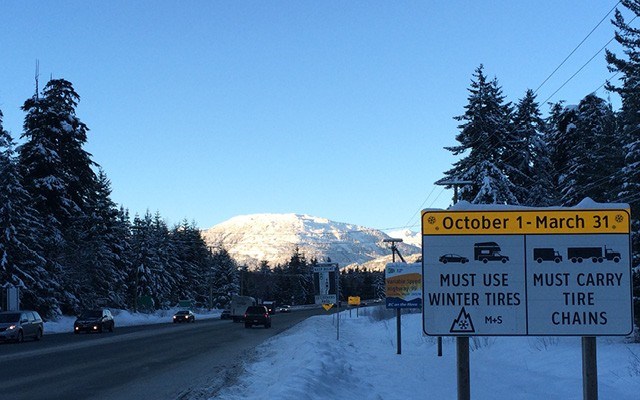Whistler is anticipating the biggest year yet for hotel tax revenues with a total $4.5 million payment for 2015.
That number makes an even more compelling case for Whistler to apply to boost its hotel tax (known as the Municipal and Regional District Tax or MRDT) from two per cent to three per cent. This week the municipality confirmed it is moving forward with an application. It's a decision that could add millions to municipal coffers every year.
"(It's) great because of course with the increased occupancy levels, the increased numbers of visitors, both day trippers and others, we need those additional revenues to allow us to keep up," said Mayor Nancy Wilhelm-Morden.
The Resort Municipality of Whistler (RMOW) has hired a consultant to assist in the lengthy preparation of the application. Council will have the final say once the application is brought forward for its review.
The province increased the MRDT rate in the City of Vancouver by a percentage point as of Sept. 1 and then opened the door for applications across the province.
It has not received any other rate increase applications to date, but several communities have made inquiries.
Communities who bump up their MRDT to three per cent will also contribute to a new provincial Tourism Events Program, designed to support provincially significant events that will grow tourism revenues by increasing the number of visitors to B.C.
The contribution will be 0.2 of the one per cent MRDT increase.
That's a concern for Whistler's mayor, redirecting money collected from local hotels to Destination BC.
On the flip side: "There's nothing to prevent Whistler either from applying to some of those funds to be returned back for provincially significant events and celebrations here in Whistler," said the mayor.
"Just because some of the funds are being sent to Destination BC doesn't mean that that's the last we will see of them."
The 2015 MRDT payments for November and December have not been received, but the RMOW is estimating a roughly $1 million payment for the last two months of the year — a direct sign of just how busy the resort has been this winter season. This is on top of the $3.56 million already received from January through to October, many of those record-breaking months for occupancy in Whistler. If the estimates pan out, this will be the biggest year yet for hotel tax revenues in Whistler.
B.C. Ministers reviewing GAS project
The future of the four-season Garibaldi at Squamish (GAS) resort now lies in the hands of two provincial ministers.
Mary Polak, minister of environment, and Steve Thomson, minister of forest, lands and natural resource operations, are now reviewing the file for the new ski resort on Brohm Ridge, north of Squamish, a resort that has raised concerns throughout the corridor from Whistler to Squamish and the regional district.
The ministers' deadline for a decision on an Environmental Assessment Certificate is Monday, Feb. 1. That certificate is the key to the project moving forward or not.
This week Whistler's mayor once again highlighted the opposition for the project. It's not just Whistler, she said. Concerns are coming from the local chambers of commerce, the Canada West Ski Areas Association, as well as the District of Squamish and the Squamish Lil'wat Regional District.
"When everybody is saying 'no,' why are they still pursuing it?" asked Wilhelm-Morden.
GAS spokesperson Jim Chu said they are continuing to meet with local community groups and users of Brohm Ridge.
"We will not be rushing anything," he said in an email in response to what the next steps would be should the EA process be successful.
"We will be taking our time to ensure we have addressed local concerns before proceeding with any next steps."
On Dec. 16, 2015, the Environmental Assessment Office, a neutral agency that manages the review of proposed major projects in B.C., made its referral under section 17 of the Environmental Assessment Act.
The referral was "strictly factual information," according to the province, and it trigged a 45-day window for the ministerial decision.




